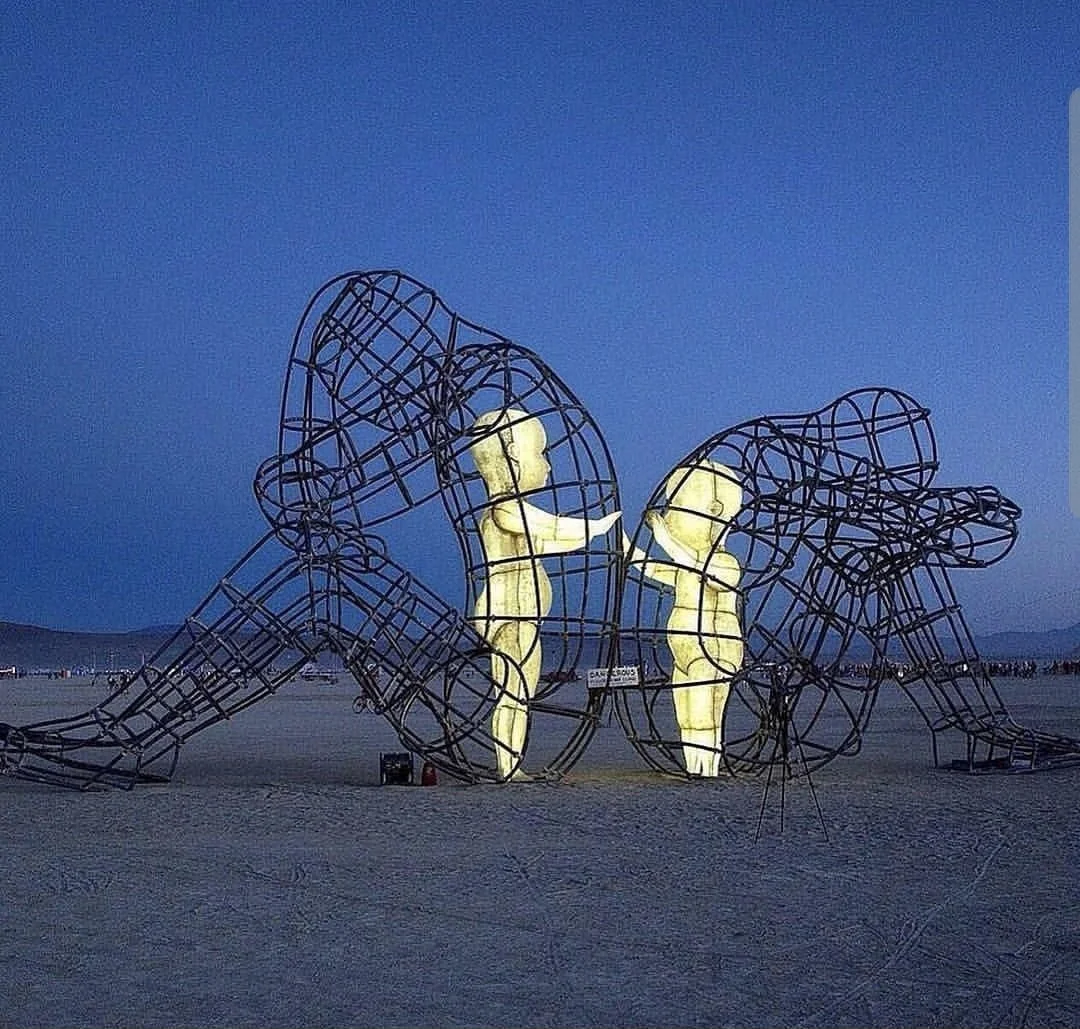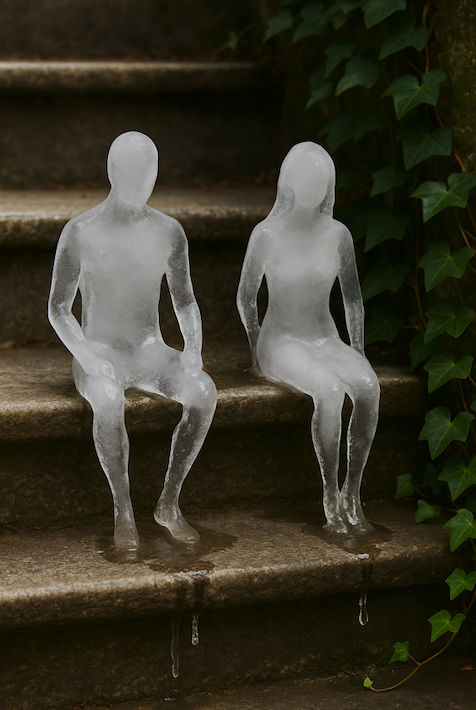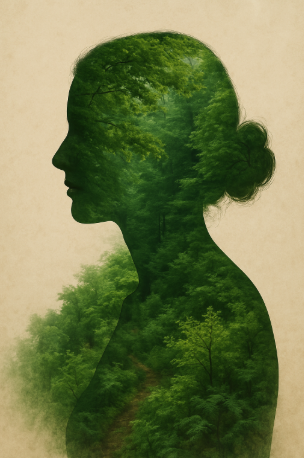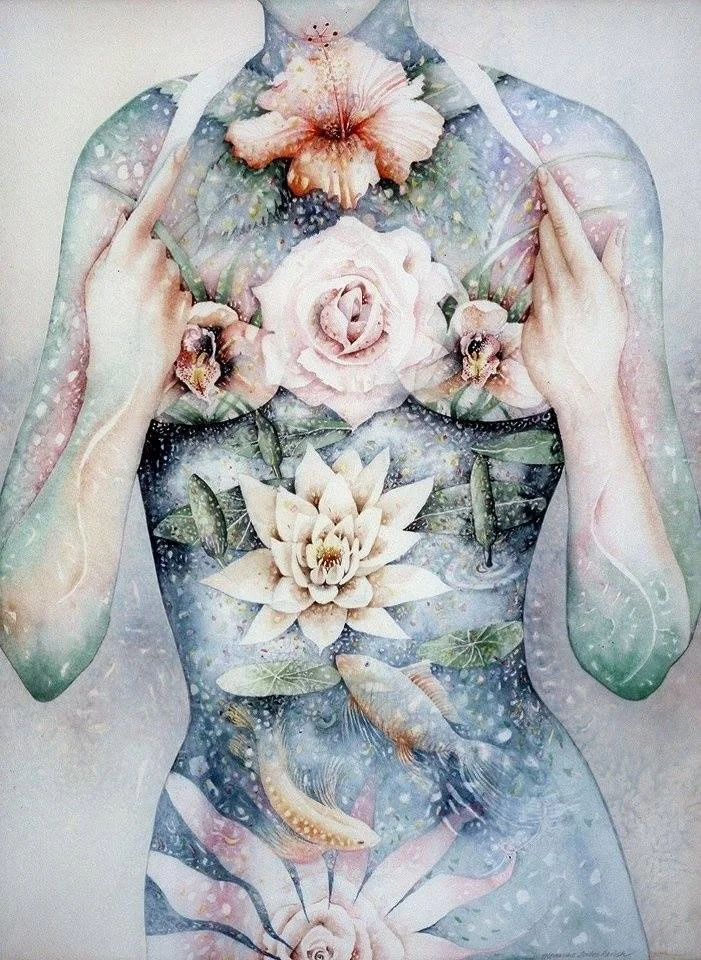A nervous system reflection on collective disgust, power, and disillusionment
There are moments when the collective emotional field shifts. You can feel it, not just in headlines or conversations, but in the body. A heaviness. A tightening. A quiet sense of repulsion that sits somewhere in the triad of disgust, anger and grief. Lately there has been a lot of upheaval in our lives and lots of information revealed that has frankly, shocked many of us to our core.
It is not just the big stuff. I feel like every day I read the newspaper or look online and something about the abuse of power is there.
So it is not surprising that many people have been describing feelings of disgust, disbelief, and despair as more information circulates about powerful people, networks, and systems that appear far more complex and paradoxically far more human than we once imagined.
The reactions are strong and they make sense because this isn’t just an intellectual response.
It is a nervous system response and we notice that the body knows before the mind can explain.
When people feel disgust, the body is doing something very specific.
Disgust is a boundary emotion. It is the nervous system saying, this is not safe, it has crossed a line and I need distance. Disgust is an interesting emotion because it doesn’t say fight, it says move away. Our visceral reactions with disgust are often really strong; recoiling, nausea, tightening in the throat and gut, facial expressions that close down intake. It is like our body is saying, ‘do not ingest this’. Which makes sense when you think that disgust evolved evolutionarily to protect us from contamination, like rotten food or toxins. When you explore it psychologically that same neural circuitry extends to moral violations, ethical breaches, abuses of power and relational betrayal. So when people feel disgust at certain events or revelations, the nervous system is experiencing something more than ‘this is wrong’. It is experiencing a very different message. The message is more ‘this feels contaminating to my sense of safety or moral order’.
It is a little bit different to anger. Which we then might experience closely after it. Anger is a mobilising energy that wants to restore integrity or fairness. After that, for many if anger offers us no respite, then comes something heavier. A flattening, fatigue and often a sense of despair. The moment when the body recognises that the systems involved feel too large to influence.
Now lets think about disillusionment for a minute. At a nervous system level, disillusionment isn’t just disappointment. It’s the moment when something we were orienting toward; a person, system, belief, or story, no longer provides stability. The illusion wasn’t just an idea, It was an organising principle that helped shape our mental models of how things are, how we perceive everything works together.
So when it falls away, the body momentarily loses its map. You might feel a drop in energy, a slowing or flattening, maybe heaviness in the chest or a kind of internal ‘oh…’ that comes with a sinking feeling in your belly. It is almost like our body is saying ‘I don’t know where to place my trust now’. With disillusionment, it is like relational disappointment and so we might be feeling something like a micro grief because we are carrying sadness rather than outrage (or maybe outrage too!). It might feel like we are grieving the certainty, innocence and simplicity we once knew.
In the context of what we are experiencing with information revealing abuse of power, these responses are not signs that something is wrong with us. They are signs that our bodies are orienting to what feels morally and relationally unsafe.
When trust and power collide
Human beings are wired to seek safety through connection. Connection with trusted structures like families, communities, organisations, leaders, institutions. When those structures feel compromised, the impact is deeper than opinion or politics.
It can feel like an attachment rupture at a collective level.
Deep inside of us we ask, Who can we trust now? What is actually true? How do we orient in the world?
In my work with teams and leadership systems, I often see a similar dynamic. When trust breaks in a leadership group, the entire nervous system of the team shifts. People become hypervigilant, cynical, or withdrawn. Energy that once went toward creativity or collaboration turns toward self-protection.
In society, the collective field behaves much the same way.
Digital art, Kellie Stirling
Another way we can look at it is by using a metaphor; The forest and the storm.
Sometimes a forest looks healthy from a distance. The canopy is full and the trees stand tall. When we zoom up above and look down, everything appears stable.
But a storm arrives, and suddenly weak branches fall. Rot hidden deep within the roots is exposed. What seemed solid reveals its fragility. The storm did not create the decay, it simply revealed what was already there.
This is often how systemic realities come into awareness not all at once, but through moments that expose the invisible networks of power, proximity, and influence that shape human systems. The discomfort people feel is partly the shock of seeing complexity where we once wanted simplicity.
Living with complexity without collapsing
Our nervous systems like clear categories: good or bad, safe or unsafe, hero or villain.
Complexity asks more of us. It asks us to hold multiple truths at once that people can be influential and flawed, connected and compromised, admired and deeply human. It is asking us to hold the tension of polarity, of competing priorities.
When this ambiguity becomes too much, we tend to move toward extremes. It can look like outrage that burns hot and fast or sometimes numbness that shuts us down. Often we protect ourselves by demonstrating cynicism that protects us from disappointment.
But there is another possibility, a slower and more embodied stance. That is Witnessing.
Not bypassing what we feel. Not rushing to certainty. Simply allowing the body to register what is present while staying connected to our capacity for discernment.
Staying human in a dysregulated world
When collective stories stir strong emotional responses, it helps to come back to what our nervous systems can actually hold. To orient to the present moment and to notice where we still have agency. Can we find where we have choice in how we speak, how we relate, how we show up in our own circles of influence?
Systems change slowly and nervous systems change slowly too. Often the most grounded response is not to harden, but to stay soft enough to feel, while strong enough to hold boundaries.
How can we rejuvenate and grow in the face of decay, how can we hold space for it?
In nature, decay is not the end of the story. When something breaks down, it creates space for renewal. Nutrients return to the soil. New growth becomes possible. Perhaps this is also true in human systems. Moments that expose cracks in our collective structures can feel deeply uncomfortable, even destabilising, but they also invite reflection.
We can ask ourselves what kind of leadership we want to grow now within ourselves and what values we choose to root into, even when trust feels fragile. The work is not only to witness what has been revealed. It is to stay human, grounded, discerning, and connected as the system reorganises around us. The more we can stay in peace and calm and maintain a clear focus, the more easily we can navigate this time. Can we stay connected to a vision of a much more compassionate and loving world for all of us as familiar systems shift and reshape around us?
If you are struggling at the moment with the chaos of the world, here are some reflection questions for you.
What sensations arise in your body when something feels morally confronting?
What helps you stay grounded and discerning when trust feels fragile?
What kind of leadership are you choosing to embody in your own sphere right now?




















